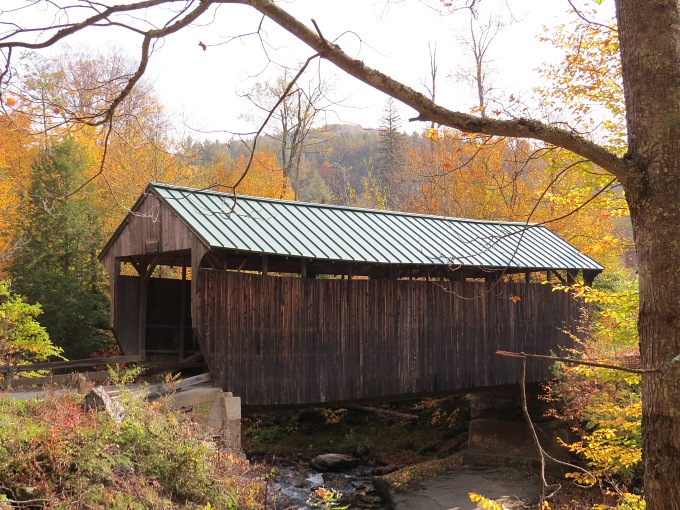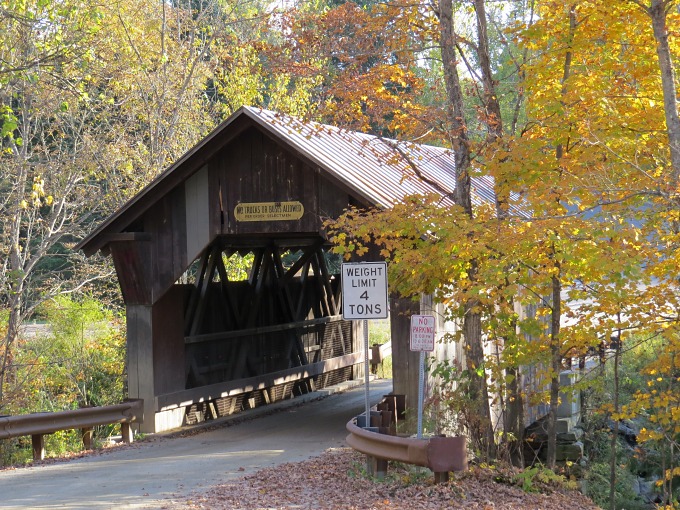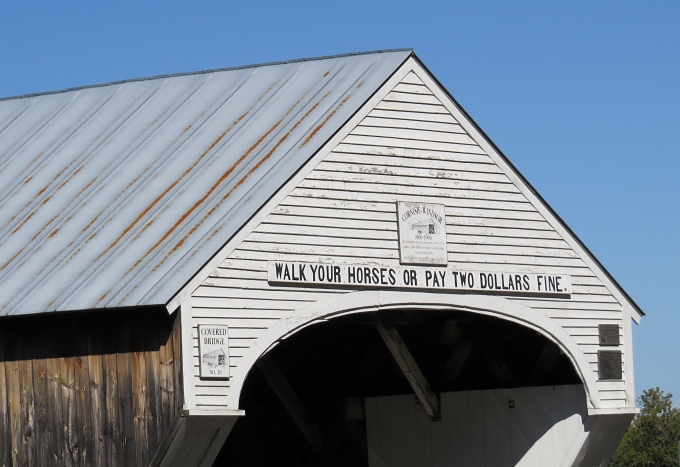
“A covered bridge is a timber-truss bridge with a roof and siding which, in most covered bridges, create an almost complete enclosure.The purpose of the covering is to protect the wooden structural members from the weather. Uncovered wooden bridges have a life span of only 10 to 15 years because of the effects of rain and sun.” according to Wiki

We've visited the Bridges of Madison County in Iowa and we've seen a covered bridge or two in California. The state of Pennsylvania has the most covered bridges in the US and we've seen several of them, but Vermont has the greatest concentration of covered bridges per square mile. A century ago, there were over 600 covered bridges in Vermont, but floods in 1927 wiped out 400 of them. Due to fire, vandalism or development (some call it “progress”), nearly half of those remaining bridges have been lost. The 114 surviving bridges are among the finest in the country and, unlike many of the bridges we've seen, they're not just for show. Most of these bridges are used regularly.

The Windsor-Cornish Bridge connects Vermont and New Hampshire across the Connecticut River. This is the longest wooden covered bridge in the United States and the longest two-span covered bridge in the world.

Because of the utilitarian nature of the bridges, some are plain and drab while others are knock-your-socks-off stunning. The Taftsville Bridge in Woodstock is an example of the stunning variety and it's also one of the oldest bridges in the state (1836).

There are several “kissing” bridges in Vermont. Legend has it that if a couple kisses in the very center of the bridge, they'll be together forever. We didn't want to take any chances, so we adhered to the rules. Not to mention, it made the walk across the bridges even more enjoyable.

There is one supposedly haunted bridge, Emily's Bridge, in Stowe Vermont. Evidently, a jilted young woman died here and has haunted the bridge ever since, at least that's the local story. She wasn't around when we visited.

Feeling the solidness of the timbers as the bridge carries you across the stream or river below on wide, thick, wooden planks and thinking about the thousands of people, horses, wagons and cars that have traversed this same path in the past century or two provide a personal sense of history.

Evidently, rushing across the bridge was never allowed.

Some bridges are dark inside; others have windows from which to peer out and survey the river below.













